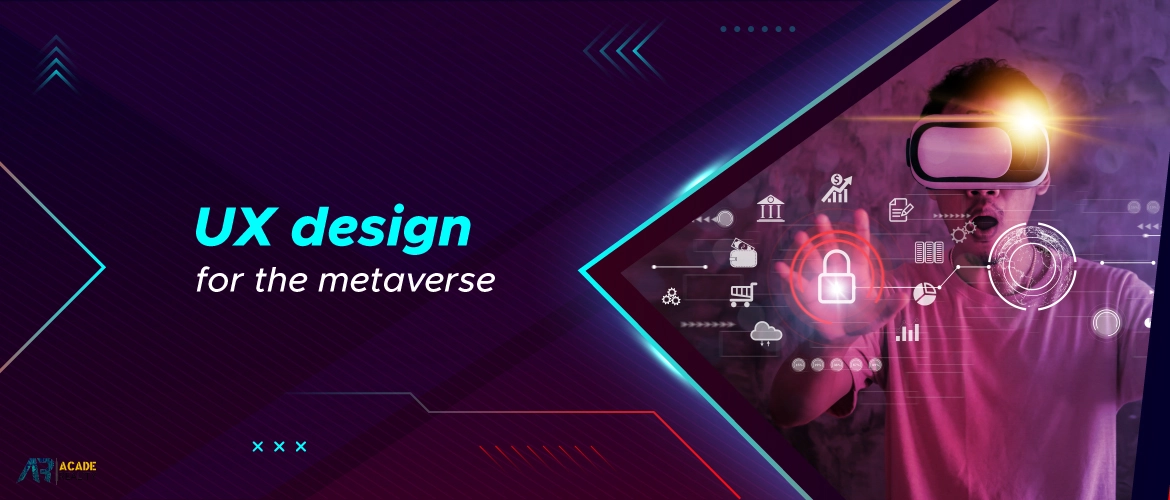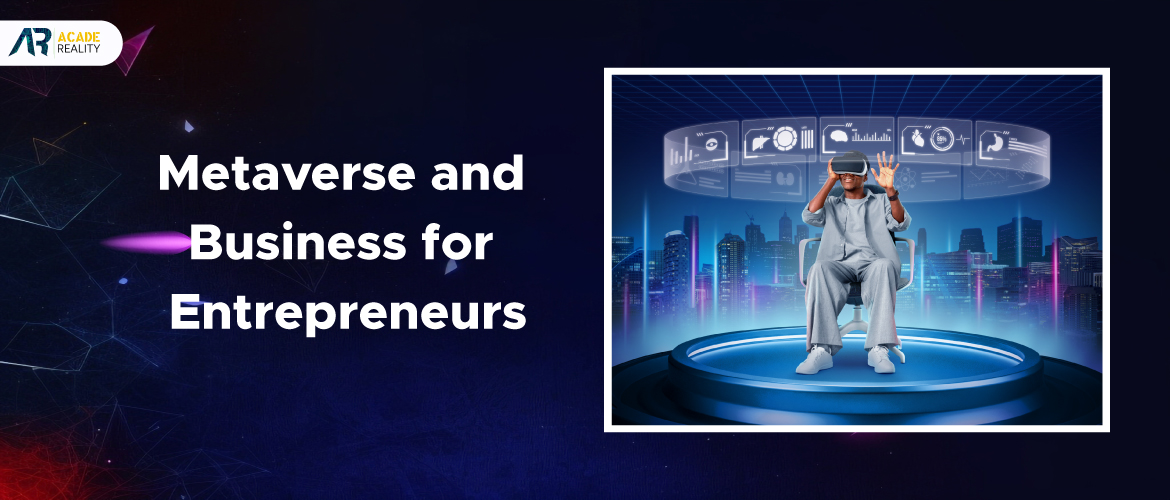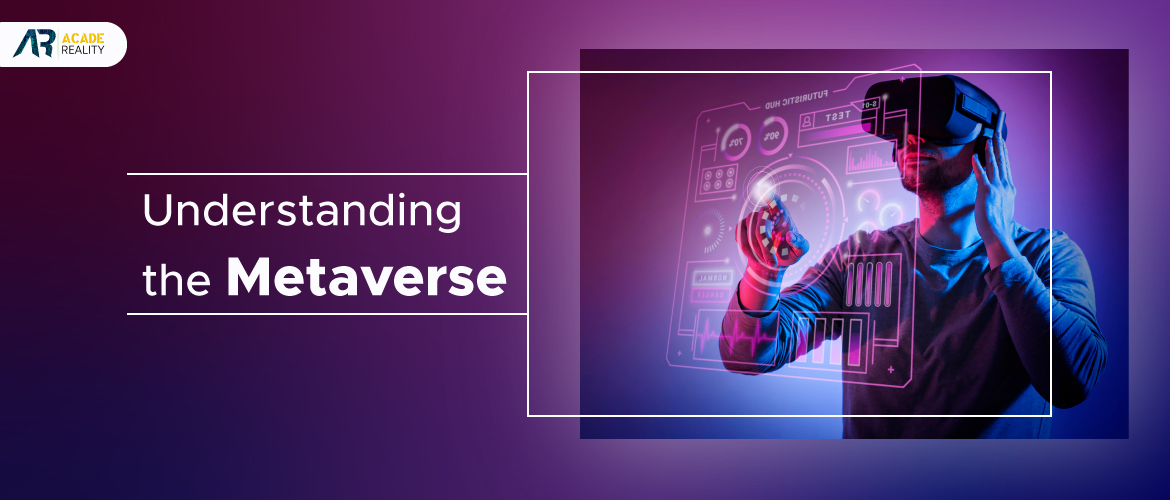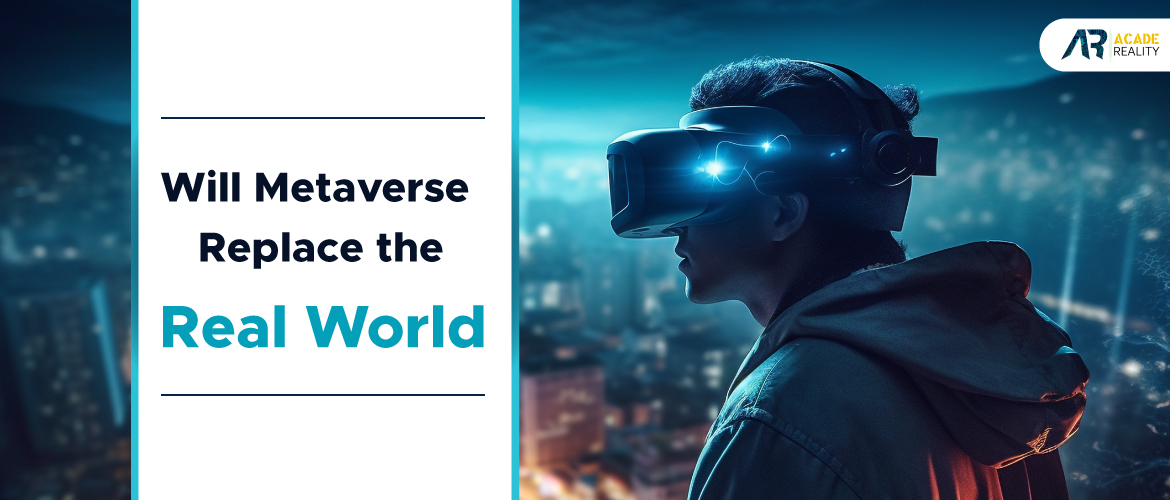How Metaverse Development Transforming Industries

Introduction
This virtual universe is no longer confined to science fiction; it's now a burgeoning reality, reshaping industries in unprecedented ways. The term "Metaverse" has become a buzzword, with Metaverse applications in different industries taking center stage. As businesses adapt to these revolutionary changes, the Metaverse has become a driving force behind a new era of Evolution. Here, we will explore the core of the Metaverse, exploring how development services are catalyzing transformation in various industries.
Metaverse Trends
The Metaverse, once considered a distant future, is now an integral part of the digital landscape. Its rapid rise can be attributed to several key Metaverse Trends that have gained momentum in recent years.
1. Virtual Reality (VR) and Augmented Reality (AR) Integration
Metaverse development hinges on the integration of VR and AR technologies. With the advent of increasingly powerful hardware and software, these immersive experiences have become more accessible to users, making it possible for businesses to create compelling virtual spaces.
2. Blockchain and NFT Integration
The Metaverse has seen a significant embrace of blockchain technology and non-fungible tokens (NFTs). These technologies enable the creation of unique, ownable digital assets, enhancing the economic aspect of the Metaverse.
3. Social Interactions and Communities
One of the most significant trends in the Metaverse is the emphasis on social interactions and the creation of digital communities. Users are now able to connect, collaborate, and socialize in virtual spaces, mirroring real-world interactions.
4. Digital Twins and Avatars
Personalization and self-representation are essential aspects of the Metaverse. Users can create digital twins and avatars, allowing them to navigate the virtual world in their unique way.
Metaverse Applications in Different Industries
1. Gaming and Entertainment
The gaming industry has been at the forefront of Metaverse development. It's not just about playing games but immersing oneself in entire virtual worlds. Virtual reality games and massively multiplayer online games (MMOs) are some of the best examples. With Metaverse development services, gaming and entertainment have reached unprecedented heights.
- Gaming Beyond Borders: In the Metaverse, gamers can explore vast virtual landscapes, interact with other players, and even participate in virtual economies. Game developers are using trends like blockchain and NFT integration to create unique in-game assets that players can buy, sell, and trade in and out of the game.
- Virtual Concerts and Performances: Musicians and artists are leveraging the Metaverse to host virtual concerts and performances, reaching a global audience in real time. Fans can attend live shows from the comfort of their own homes, opening up new revenue streams for artists.
- Film and Content Creation: In the Metaverse, content creation goes beyond traditional filmmaking. Creators can build virtual studios, create interactive storytelling experiences, and engage with audiences in unique ways.
2. Education and Training
The education and training sector is another area where development services are making a significant impact. Virtual classrooms and training simulations have become the norm.
- Immersive Learning Environments: The Metaverse offers immersive learning environments, enabling students to engage with educational content like never before. Virtual reality simulations can provide hands-on training experiences in various fields, from medical surgery to aerospace engineering.
- Lifelong Learning: The Metaverse promotes lifelong learning by making education accessible to people of all ages. Whether it's a new language, skill, or hobby, individuals can engage in continuous learning in the Metaverse.
- Remote and Global Learning: The Metaverse transcends geographical boundaries, making it possible for students and professionals to collaborate and learn globally. Virtual classrooms and collaborative workspaces are redefining how we perceive distance education.
3. Healthcare and Telemedicine
Healthcare is another industry benefiting from Metaverse applications. Telemedicine and virtual healthcare are increasingly being integrated into the Metaverse, improving patient care and accessibility.
- Virtual Consultations: Patients can access healthcare professionals through virtual consultations, eliminating geographical barriers. These consultations can include diagnoses, therapy, and follow-up care.
- Medical Training: Healthcare professionals can use the Metaverse for medical training and simulations. Surgeons, for example, can practice complex procedures in virtual environments before performing them on real patients.
- Health and Wellness Monitoring: Wearable devices and sensors can collect real-time health data and transmit it to the Metaverse. Patients and healthcare providers can monitor health conditions remotely, leading to more proactive healthcare management.
4. Real Estate and Architecture
The Metaverse is transforming the way we buy, sell, and design properties. Real estate and architecture professionals are leveraging development services to offer innovative solutions.
- Virtual Property Tours: Prospective buyers can explore properties through virtual tours, experiencing them as if they were physically present. This enhances the decision-making process and reduces the need for in-person visits.
- Architectural Design: Architects and designers can create virtual prototypes of buildings, allowing clients to visualize the final product in an interactive 3D environment. This streamlines the design and approval process.
- Urban Planning and Development: City planners are using the Metaverse to simulate and test urban development projects before implementation. This can lead to more efficient and sustainable city planning.
5. Retail and E-Commerce
Metaverse development is reshaping the retail industry by offering new ways for consumers to shop and engage with brands.
- Virtual Shopping: Shoppers can browse virtual storefronts, try on digital clothing, and interact with products in a virtual environment. This has the potential to revolutionize the way we shop online.
- Brand Engagement: Brands are creating virtual spaces where consumers can interact with products, learn about their features, and even attend virtual events and launches.
- Personalized Shopping Experiences: The Metaverse allows for highly personalized shopping experiences, with AI-driven recommendations and virtual assistants guiding customers through their shopping journey.
Also Read: Metaverse and Business: Opportunities and Challenges for Entrepreneurs
Business Evolution in the Metaverse
The Metaverse revolution is not limited to specific industries; it's transforming business models and practices across the board. Business Evolution in the Metaverse involves a fundamental shift in the way companies operate.
1. New Revenue Streams
One of the most significant aspects of Business Evolution in the Metaverse is the creation of new revenue streams. Businesses can monetize virtual assets, services, and experiences, such as virtual real estate, digital goods, and in-game purchases. This diversification of income sources can be a game-changer for companies.
2. Decentralization and Ownership
Blockchain technology and NFTs are driving the decentralization of assets and ownership in the Metaverse. Users have greater control over their digital assets and can own unique virtual items, which they can trade and sell, thereby reshaping traditional concepts of ownership.
3. Remote Work and Collaboration
The Metaverse enables companies to embrace remote work and collaboration in entirely new ways. Virtual offices and meeting spaces facilitate global teamwork, offering enhanced productivity and reducing geographical limitations.
4. Marketing and Brand Engagement
Marketing in the Metaverse involves creating immersive, interactive experiences that engage customers on a deeper level. Brands can leverage Metaverse trends like social interactions, digital twins, and personalized shopping to build strong connections with their audiences.
5. Data and Analytics
The Metaverse generates vast amounts of data about user behavior and interactions. This data is invaluable for understanding customer preferences, optimizing products and services, and making data-driven decisions.
Challenges and Concerns
While the Metaverse offers immense potential, it also presents unique challenges and concerns.
1. Privacy and Security
The collection of extensive user data in the Metaverse raises concerns about privacy and security. Safeguarding personal information and preventing cyberattacks are critical challenges.
2. Inclusivity and Accessibility
Ensuring that the Metaverse is accessible to all, including individuals with disabilities, is essential. Developers must prioritize inclusivity and address accessibility concerns.
3. Regulatory Framework
The evolving nature of the Metaverse raises questions about regulation and governance. Policymakers need to adapt to the new digital landscape, balancing innovation with consumer protection.
4. Content Moderation
Managing content in the Metaverse, particularly user-generated content, presents challenges in terms of moderating harmful or illegal material. Striking the right balance between freedom and responsible oversight is a complex issue.
5. Ethical Considerations
The Metaverse introduces ethical dilemmas, such as the potential for addiction, the impact on mental health, and the consequences of a blurred line between the real and virtual worlds.
Conclusion
The Metaverse is more than just a technological advancement; it's a Metaverse Revolution that is reshaping industries and businesses alike. From gaming and education to healthcare and retail, Metaverse development services are catalyzing transformation across the board. As businesses evolve in this new digital frontier, it's essential to address challenges and concerns while harnessing the vast potential of the Metaverse. The journey has just begun, and the Metaverse promises to be a dynamic and exciting space for innovation and growth in the years to come.
You Might Like





